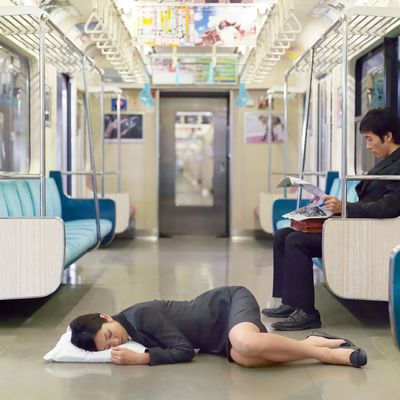
Toss and turn long enough and eventually the process of falling asleep starts to feel a lot like the five stages of grief. There’s denial (“I’ll be fine on five hours’ sleep”), anger (“Why can I not just fall asleep already?”), bargaining (“Okay, if I fall asleep in the next five minutes, I’ll get at least four hours”), depression (“Tomorrow is going to be the worst”), and acceptance (“Bring on the coffee”) — all in the service of mourning the bright-eyed, well-rested you that could have been.
According to the National Sleep Foundation, it should take somewhere between 10 and 20 minutes to doze off, a period of time known as “sleep latency.” Plenty of things can stretch out that latency period — stress, a medical condition, even napping too much during the day — but often, it’s just a sign that you’re going about this bedtime thing all wrong. Here are a few simple sleep hacks to help you minimize the time between climbing into bed and dozing off to sleep.
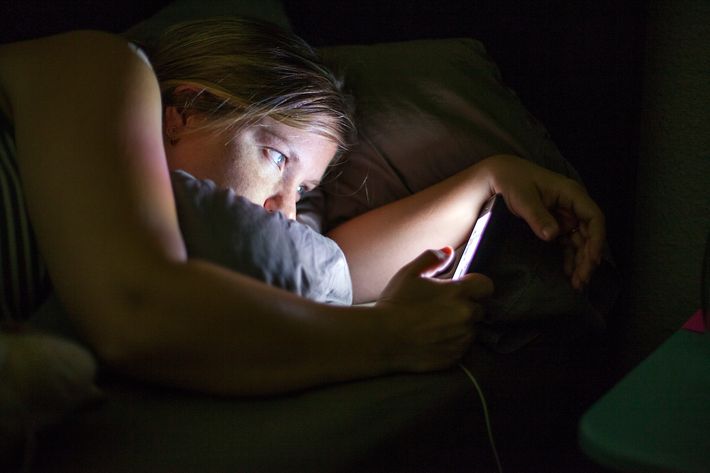
Put down your phone.
This one’s a doozy: Around 95 percent of Americans admit to using a phone right before bed, even though a growing body of evidence shows that screen time can seriously mess with your circadian rhythms. Digital devices give off blue light, which has been shown to suppress the production of melatonin, the hormone that makes you feel sleepy. To avoid screen-induced insomnia, then, set yourself some limits: Figure out when you want to get in bed, and turn off your phone — and your Kindle, and your laptop, and your TV — an hour before.
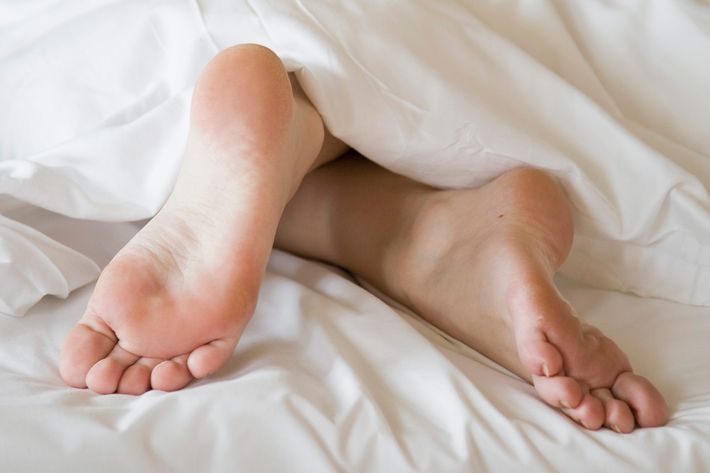
Keep cool (and don’t forget your feet).
Your body naturally cools down as it prepares to doze off, but there are some things you can do to speed up the process: Drinking some warm liquid or taking a hot soak in the tub, for example, both help to lower your internal temperature (there’s a reason baths are so relaxing). And as a sleep researcher has explained to Science of Us, keeping your feet outside the covers is a low-effort way to achieve the same result — exposing them to the cold air, rather than the heat that gets trapped under your blanket, helps your body heat to dissipate more quickly. It’s a surprisingly simple sleep hack, one that helps you fall asleep more quickly and sleep better once you’re out.
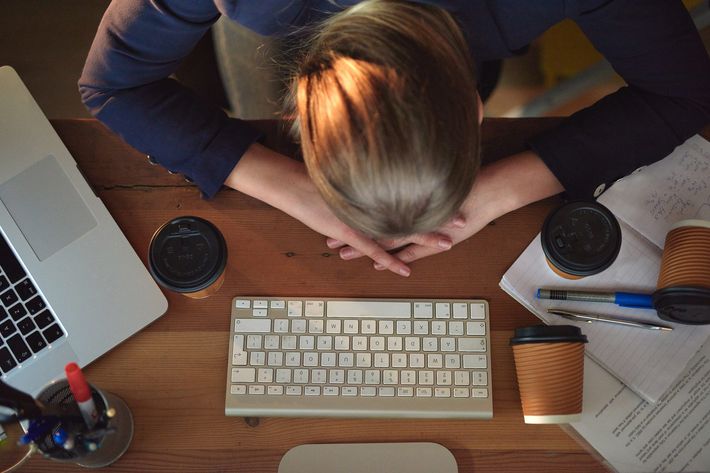
Cut off your vices in the late afternoon.
There are plenty of factors that determine how long a caffeine buzz will last, including your your build, your genes, your gender, and certain medications. But generally speaking, caffeine has a half-life of four to six hours, meaning that’s the amount of time it will take for your body to process half of what you’ve consumed. To put it another way: It’s probably best to lay off the coffee way, way before bedtime. The same goes for booze, which, contrary to popular belief, can make it harder to fall asleep: The tired feeling sets in only once your blood alcohol level starts to drop, meaning a nightcap will just delay things rather than move them along.

Set up your bedroom.
Ideally, all five of your senses will work together to push you from wakefulness into sleep. Sight and sound are the obvious ones — you want your bedroom to be dark, and you want it quiet – but there’s also touch (get comfortable, breathable sheets that don’t trap heat) and taste (the last the food and drink you consume before bed). Even smell plays a role: Research suggests that some scents can help create a more soothing atmosphere, lulling you into a sleepier state. In one small study from 2012, for example, participants who breathed in the scent of lavender saw drops in their heart rate, blood pressure, and skin temperature, all physical signs of relaxation. In another study from 2005, volunteers who inhaled lavender oil spent more time in deep sleep and reported feeling more refreshed in the morning, leading the authors to conclude that the smell was “a mild sedative.”
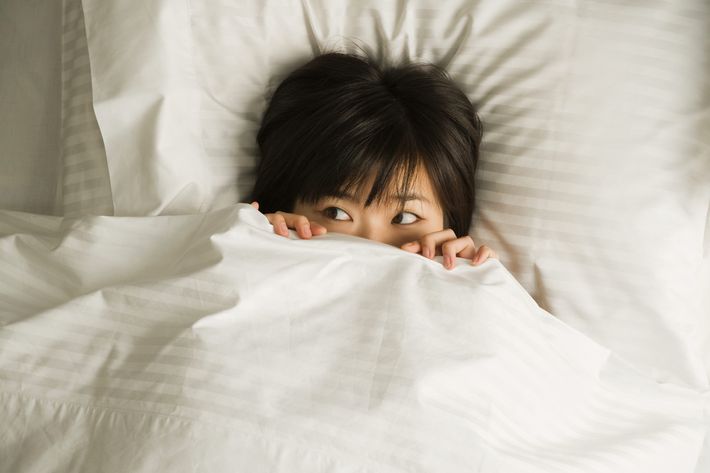
Worry more.
It sounds counterintuitive, but some research suggests that “constructive worrying” can actually help calm your mind come bedtime. Just like writing about your feelings can help lift you out of an emotional funk, taking time to catalog all the things that you’re worried about can help you put them away for the night, leaving you free from the various nagging thoughts that would otherwise leave you staring at the ceiling. The key to a sleepy brain, it seems, is a clear head.




